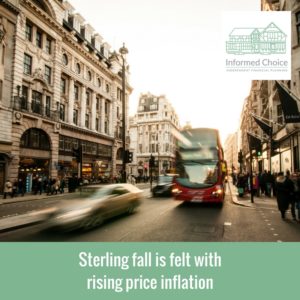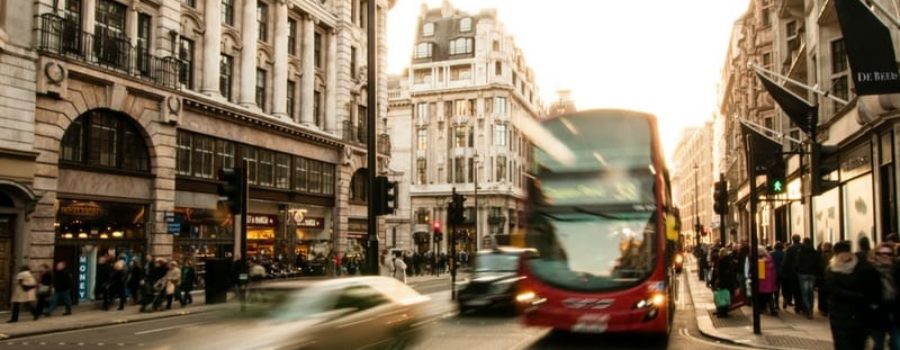 Price inflation in the UK has risen sharply as the fall in Sterling starts to be felt.
Price inflation in the UK has risen sharply as the fall in Sterling starts to be felt.
The Consumer Prices Index (CPI) measure of price inflation rose to 1.6% for the year last month, up from 1.2% in November.
This means UK consumer price inflation has reached its highest level for two and a half years.
According to the Office for National Statistics, higher costs for imported materials and fuels pushed up producer prices.
ONS head of inflation Mike Prestwood said:
“This is the highest CPI has been for over two years, though the annual rate remains below the Bank of England’s target and low by historical standards.
“Rising air fares and food prices, along with petrol prices falling less than last December, all helped to push up the rate of inflation.
“Rising raw material costs also continued to push up the prices of goods leaving factories.”
The Retail Prices Index (RPI) measure of price inflation was up last month too.
RPI, which includes housing costs, rose to 2.5% for the year to December, up from 2.2% in November.
[easy-tweet tweet=”Sterling fall is felt with rising price inflation” user=”@InformedChoice” usehashtags=”no”]Commenting on today’s inflation figures, Azad Zangana, Senior European Economist and Strategist at Schroders said:
“The annual rate of UK inflation based on the consumer prices index (CPI) increased to 1.6% in December compared to 1.4% in the previous month – the fastest pace of inflation for two and a half years.
“The latest figures were higher than consensus expectations, suggesting inflation in 2017 could be more significant.
“The main factor behind the latest jump was higher energy price inflation, although core inflation – which excludes volatile series such as food, energy, alcohol and tobacco – was also higher than expected at 1.6%.
“Higher inflation is expected to squeeze household budgets over the course of the year, which is likely to lower demand and spending.
“Looking ahead, inflation could still double over the course of 2017 as the impact from the post-Brexit fall in the pound feeds through to retail prices. This should lead to a slowdown in growth, although is unlikely to cause a recession.
“As for the Bank of England, inflation remained below its 2% target last month, but the target should be exceeded when next month’s figures are released.
“We continue to expect interest rates to remain on hold despite the increase in inflation, as concerns over Brexit are still likely to keep the Bank of England cautious in its outlook.”
Rising inflation could also have an impact on retirement incomes.
Kate Smith, Head of Pensions at Aegon, said:
“Today’s increase in price inflation is a sharp reminder that people’s buying power can change over a relatively short period of time and this can be particularly hard for those on fixed incomes, which includes many pensioners.
“Increasingly people are living 20 or more years in retirement and even low-level inflation can erode the value of retirement income over time. In under 20 years the value of £100 has more than halved, which could severely restrict pensioners’ spending power and quality of life.
“Many of those with defined benefit pensions will have some built in pension increases which protects them to some extent from rising costs. However, in the coming years people will increasingly be accessing defined contribution pensions under the pension freedoms.
“While this provides a great deal of flexibility, people will need to think carefully about how they invest and access their savings to protect against inflation. Everyone is different and people’s decisions will depend on their financial and personal circumstances.
“Ideally, everyone should get advice to help them get the most out of their retirement income.”

